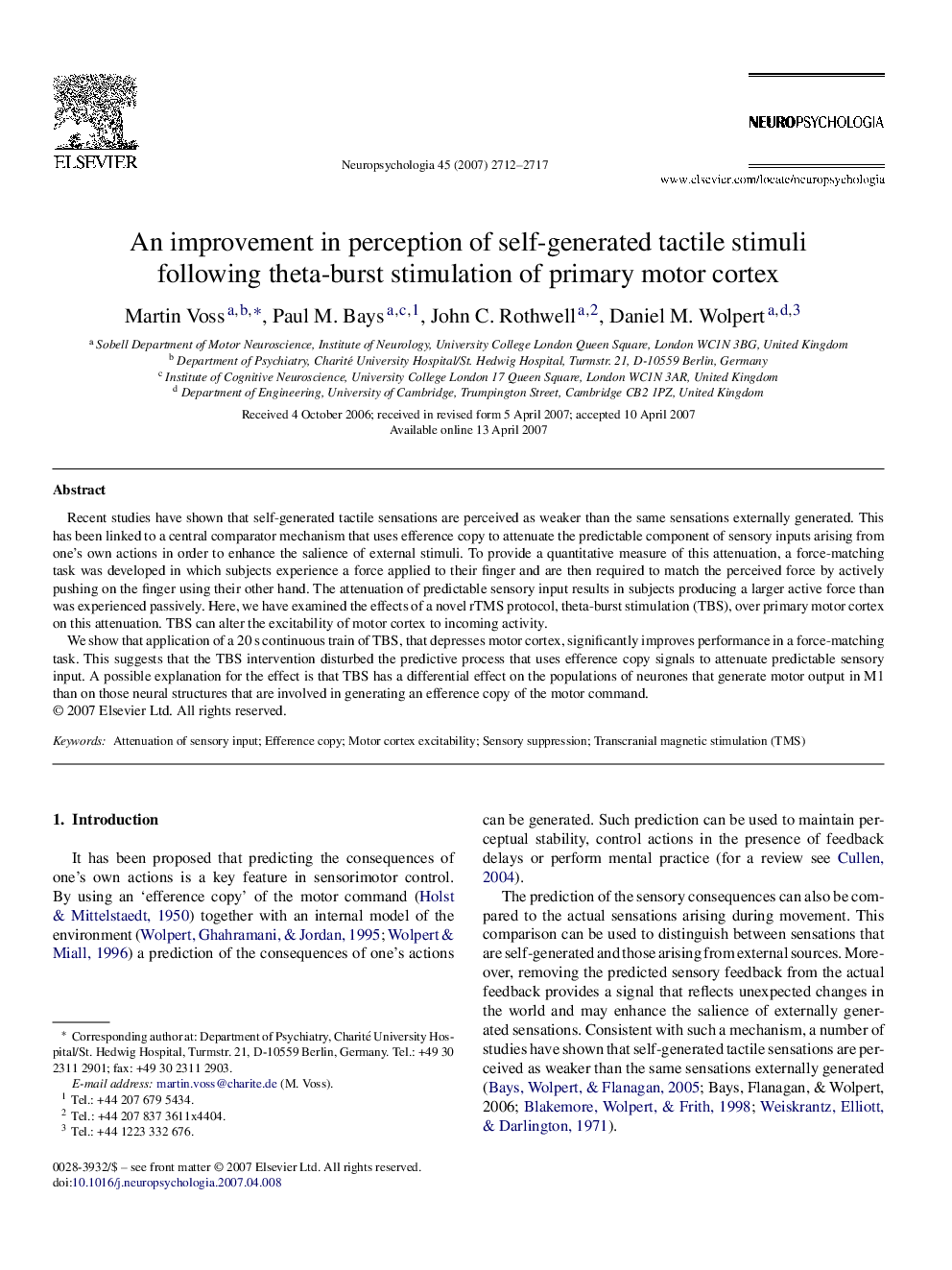| Article ID | Journal | Published Year | Pages | File Type |
|---|---|---|---|---|
| 10466772 | Neuropsychologia | 2007 | 6 Pages |
Abstract
We show that application of a 20Â s continuous train of TBS, that depresses motor cortex, significantly improves performance in a force-matching task. This suggests that the TBS intervention disturbed the predictive process that uses efference copy signals to attenuate predictable sensory input. A possible explanation for the effect is that TBS has a differential effect on the populations of neurones that generate motor output in M1 than on those neural structures that are involved in generating an efference copy of the motor command.
Keywords
Related Topics
Life Sciences
Neuroscience
Behavioral Neuroscience
Authors
Martin Voss, Paul M. Bays, John C. Rothwell, Daniel M. Wolpert,
